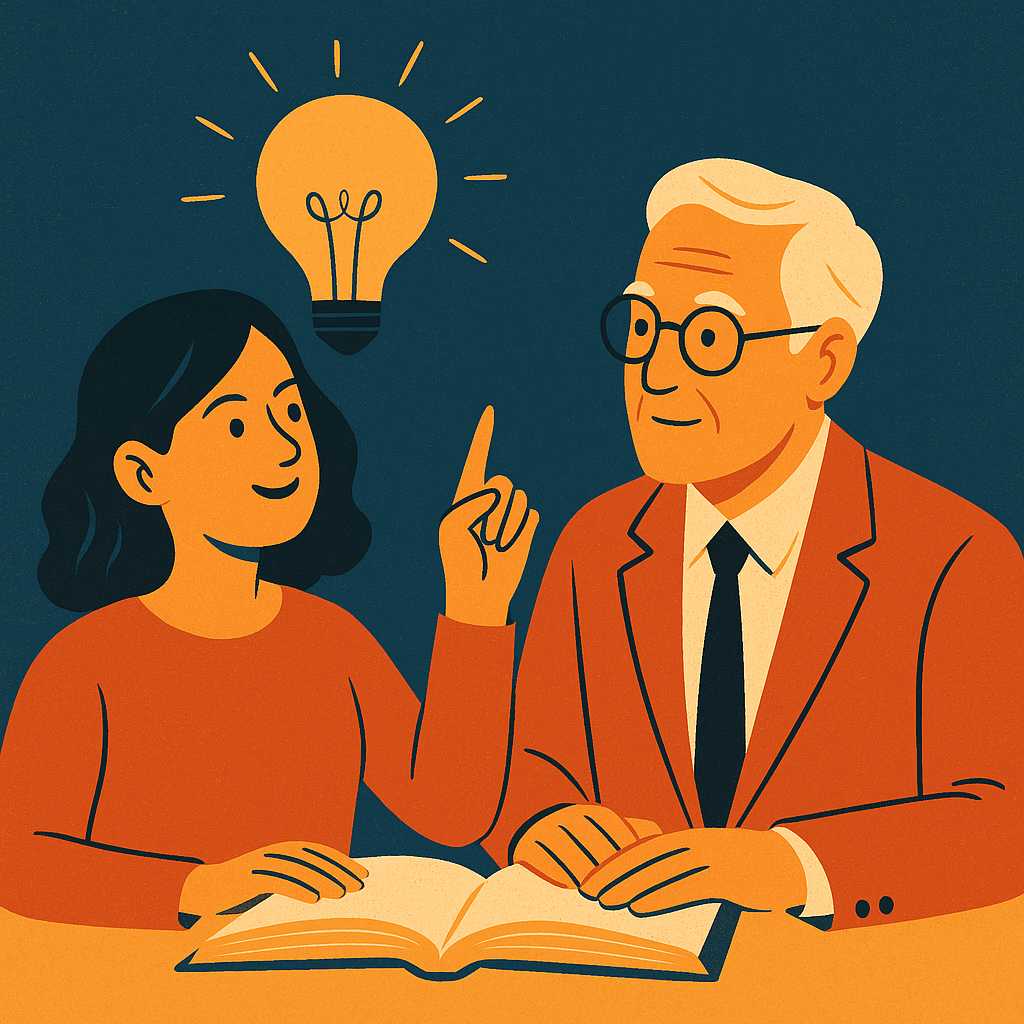Reverse mentoring challenges the inertia of thinking that the new must always be validated by the old. And it opens up the possibility that the new has value in its own right, even if it doesn’t have a name yet. Even if it’s not backed by decades of experience or a position.
What does it take for senior profiles to really open up to this kind of relationship?
Probably something that isn’t always mentioned in the manuals: humility, curiosity, and a certain tolerance for confusion. Because in these dialogues, the aim is not to confirm what’s already known, but to mess it up a bit. And that disorder can be fertile, but also uncomfortable.
How can it be implemented within an organisation?
As researchers Jennifer Jordan and Michael Sorell explain in Harvard Business Review, its implementation must be deliberate, careful and well-structured. Based on their experience, they propose several essential steps:
* Define clear objectives from the outset: a reverse mentoring programme needs a concrete intention: do we want to accelerate digital transformation? Explore new generational sensitivities? Open up spaces for diversity? The clearer the purpose, the easier it will be to guide the conversations.
* Select participants carefully: both profiles should be chosen for their willingness to listen, to question and to step out of their comfort zone. It’s not just about matching by areas of expertise, but by openness and attitude.
* Set expectations and relationship standards: it’s important to create a safe environment where people can speak honestly.
* Provide training and coaching on how to approach these conversations, how to give constructive feedback and how to sustain the dialogue even when tensions arise.
* Follow-up (without turning it into control): the team responsible for the programme should accompany the process in order to detect obstacles, adjust dynamics and gather lessons learned. But this follow-up should be done with respect, without invading the autonomy of the pairs.
Listening to the newcomer shouldn’t be an exception, but a daily gesture. A way of not being left behind. Also, a way of not forgetting that one day, we were all newcomers.
Sources:

